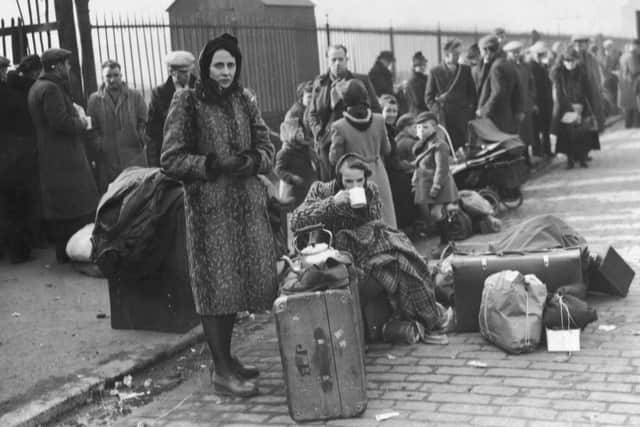Climate change requires kind of collective effort that British people made during Second World War – Anthony Seaton
This article contains affiliate links. We may earn a small commission on items purchased through this article, but that does not affect our editorial judgement.
Climate change is the greatest threat to our way of life since 1939. Then we responded when the Nazis threatened to invade. I recall the sirens, burning buildings, queues, rationing, shared privations. Few remember this today, and find it hard to contemplate the collective effort now required to eliminate our dependence on fossil fuels and change our dietary habits. We can all do something but, since 50 per cent of the annual global carbon footprint is attributable to the world’s wealthiest one per cent (roughly, anyone earning over £50,000), this applies most to those who can afford it.
Global average sea/air temperature rise has accelerated since 1980. Heatwaves kill thousands, in warmer climes crops fail. Sea-level rise is accelerating, storms become stronger. Hot countries parch, evaporated water released in cooler climes causes flooding. Forests burn, even in Siberia and Alaska. People, animals and plants migrate, microbes too. Adapt, move, or die: the rule of nature. Humans must rely on lifestyle change.
Advertisement
Hide AdAdvertisement
Hide AdAtmospheric greenhouse gases are 30 per cent above the highest levels in 800,000 years. Our increasing numbers and wasteful habits are responsible. We must act now to avoid tipping points at which the process becomes irreversible, with greenhouse gases and temperatures rising, and positive feedbacks kicking in.


Work out your carbon footprint
Vegetation dies from heat and fire, corals and plankton die in warm and acidic seas. Both interrupt food chains and reduce the sinks for carbon dioxide. Ice melts, less heat is reflected into space, and trapped methane is released. More of this happens each ‘hottest-year-ever’, until the planet spirals into uninhabitability.
International agreements to reduce greenhouse gases require individuals’ effort. The UK has almost ditched coal, oil and gas must go quickly. This is where we come in. We must reduce our own carbon footprints. The average UK citizen’s is 6.3 tonnes carbon-equivalent a year, in Scotland, 7.6 tonnes. But many are responsible for far more (work yours out online).
Heat pumps, fewer flights, local food
Here's what to do. Reduce domestic energy use. Make sure the house is well-insulated. Monitor your energy bill. Consider solar panels, which cost less than many family holidays (mine have provided an average 3,000 kWh annually over 11 years). A heat pump can replace your gas central heating unless you live in a large house. Don’t overheat your house, electric rugs can be useful. Buy electricity from a sustainable source.
Reduce use of cars and their size. If possible, go electric. I’ve had one for five years, but still walk to the shops and take buses into town. Consider the carbon cost of holidays and commuting. Minimise air travel; consider UK holidays.
A third of individual fossil energy consumption comes from purchases. Think about the lifecycle of items purchased and whether they are needed. How much is recyclable? The carbon footprint of food comes mostly from animals, transport and waste, mainly producing methane. Reducing methane is essential to ensure a sufficiently rapid fall in our carbon footprint to avoid the very worrying 2C rise in temperature. We can contribute most by reducing meat intake, buying locally produced food, and cutting waste.
The risk of catastrophe is real but there’s still hope. In World War Two, ordinary people embraced radical lifestyle changes. Today we must respond with similar determination to meet a new threat.
Anthony Seaton is a retired professor of environmental medicine and author of the book Farewell, King Coal: from industrial triumph to climatic disaster
Comments
Want to join the conversation? Please or to comment on this article.
